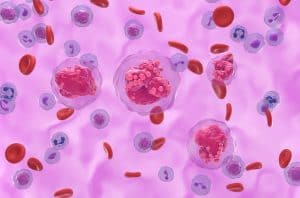GPs urged to curb spending on prescriptions
pharmafile | August 6, 2010 | News story | | GPs, NHS, NICE, NPC, prescriptions
GPs are being encouraged to reduce spending on prescriptions by following NICE’s cost-effectiveness guidelines.
A new National Prescribing Centre (NPC) report advises GPs to review and where necessary revise, prescribing in several therapeutic areas in an effort to help toward the £20 billion efficiency savings the NHS requires over the next three years.
The report focuses on 15 therapeutic areas that follow NICE guidelines on anti-psychotics for dementia patients, the use of Roche’s Xenical for obesity and the use of generic anti-platelet agents such as clopidogrel.
The NPC advise that GPs should follow NICE recommendations on the use of anti-cholesterol statins and offer patients the generic simvastatin as the first line treatment, instead of more expensive patented statins such as Pfizer’s Lipitor.
The report also notes that the use of the Merck’s cholesterol-lowering drug Ezetrol, for patients who are unable to tolerate statins, should be reduced to bring it in line with NICE recommendations.
Since NICE guidance was published in November 2007, annual spend on Ezetrol has increased from £48m to £68m, suggesting that GPs have been over-prescribing the drug to their patients according to the report.
It continues to state that any insulin analogue treatments for diabetics should be balanced carefully against the lack of long term safety data and increased prescribing costs.
NICE recommends that long-acting insulin analogues have a specific but limited place in therapy as they are “substantially more expensive than conventional insulin”, even though their use has increased over the past few years.
Dr Neil Maskrey, director of evidence-based therapeutics at the National Prescribing Centre, said that the report “identifies some key therapeutic medicines management options for local implementation in 2010/11”.
He added: “Importantly, whilst the purpose of this piece of work was to identify topics that would increase the efficiency of primary care prescribing, the evidence base for all the topics identified has been carefully examined to ensure that safety and clinical effectiveness would be maintained, or in some cases even improved, if they were incorporated into prescribing practice with less variation than at present.”
Peter Rowe, lead for the quality, innovation, productivity and prevention (QIPP) programme at the Department of Health, said: “Some of the topics here improve quality but have little or no associated cost savings. Others, when considered alone locally, can deliver relatively small cost savings, but when aggregated nationally and implemented with much less variation than currently, the savings become very significant.”
Ben Adams
Related Content

NICE recommends migraine treatment for NHS use
The National Institute for Health and Care Excellence (NICE) has shared draft guidance recommending AbbVie’s …

GSK’s Jemperli recommended by NICE for endometrial cancer treatment
GSK has announced that the National Institute for Health and Care Excellence (NICE) has recommended …

NICE recommends SC treatment of AbbVie’s Tepkinly for patients with DLBCL
AbbVie has announced that the National Institute for Health and Care Excellence (NICE) has recommended …








